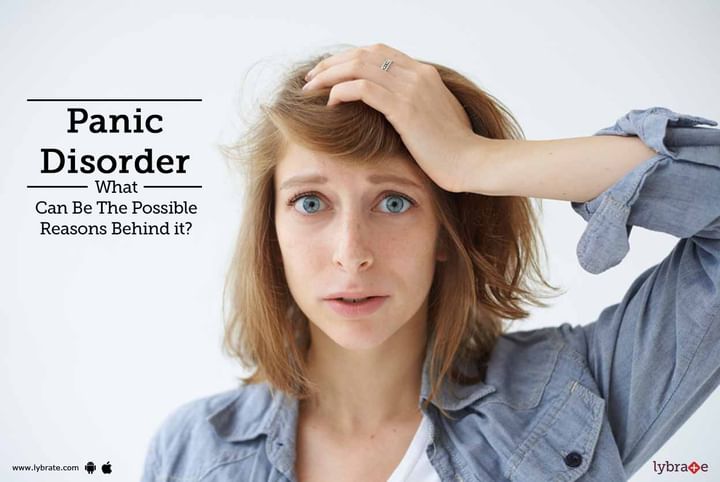Panic Disorder - What Can Be The Possible Reasons Behind it?
Panic disorder is a serious condition that can strike without any reason or warning and the symptoms last for about 10 minutes, such as; a fear for imminent death or losing control, chills, numbness of toes or fingers, stomach ache or nausea, trembling, dizziness, chest pain, shortness of breath and difficulty in breathing.
Over time, a person with panic disorder develops a constant fear of having another panic attack, which can affect daily functioning and general quality of life.
Is it a heart attack or a panic attack?
Most of the symptoms of a panic attack are physical, and many times these symptoms are so severe that people think they are having a heart attack. In fact, many people suffering from panic attacks make repeated trips to the doctor or the emergency room in an attempt to get treatment for what they believe is a life-threatening medical problem. While it’s important to rule out possible medical causes of symptoms such as chest pain, heart palpitations, or difficulty breathing, it’s often panic that is overlooked as a potential cause—not the other way around.
What are the causes behind Panic Disorder?
Although the exact causes of panic attacks and panic disorder are unclear, the tendency to have panic attacks runs in families. There also appears to be a connection with major life transitions such as graduating from college and entering the workplace, getting married, and having a baby. Severe stress, such as the death of a loved one, divorce, or job loss can also trigger a panic attack.
Panic attacks can also be caused by medical conditions and other physical causes. Panic Disorder usually begins during late adolescence and early adulthood and is twice as common with women as compared to men.
How can Panic Disorder be treated?
-
Psychotherapy- It is a type of counseling wherein trained professionals assist people by discussing strategies for comprehending and stabilizing this disorder.
-
Cognitive Behavioral Theory- Cognitive behavioral theory aims at identifying possible triggers of panic attacks and helps one recognize and change their thought patterns and behaviors that stimulate such behavior.
-
Medication- Anti-depressant medicines are used to cure panic disorders, such as Selective Serotonin Reuptake Inhibitors (SSRI), medications for reducing anxiety and certain cardiovascular medications such as beta-blockers to cope with situational anxiety.
Self-help Tips-
When it comes to panic attacks, professional treatment and therapy can make a big difference. But there are many things you can do to help yourself, too:
-
Learn about panic, read up on anxiety, panic disorder, and the fight-or-flight response experienced during a panic attack.
-
Avoid smoking and caffeine.
-
Learn how to control your breathing.
-
Practice relaxation techniques regularly like Yoga and meditation.
In case you have a concern or query you can always consult an expert & get answers to your questions!



+1.svg)
